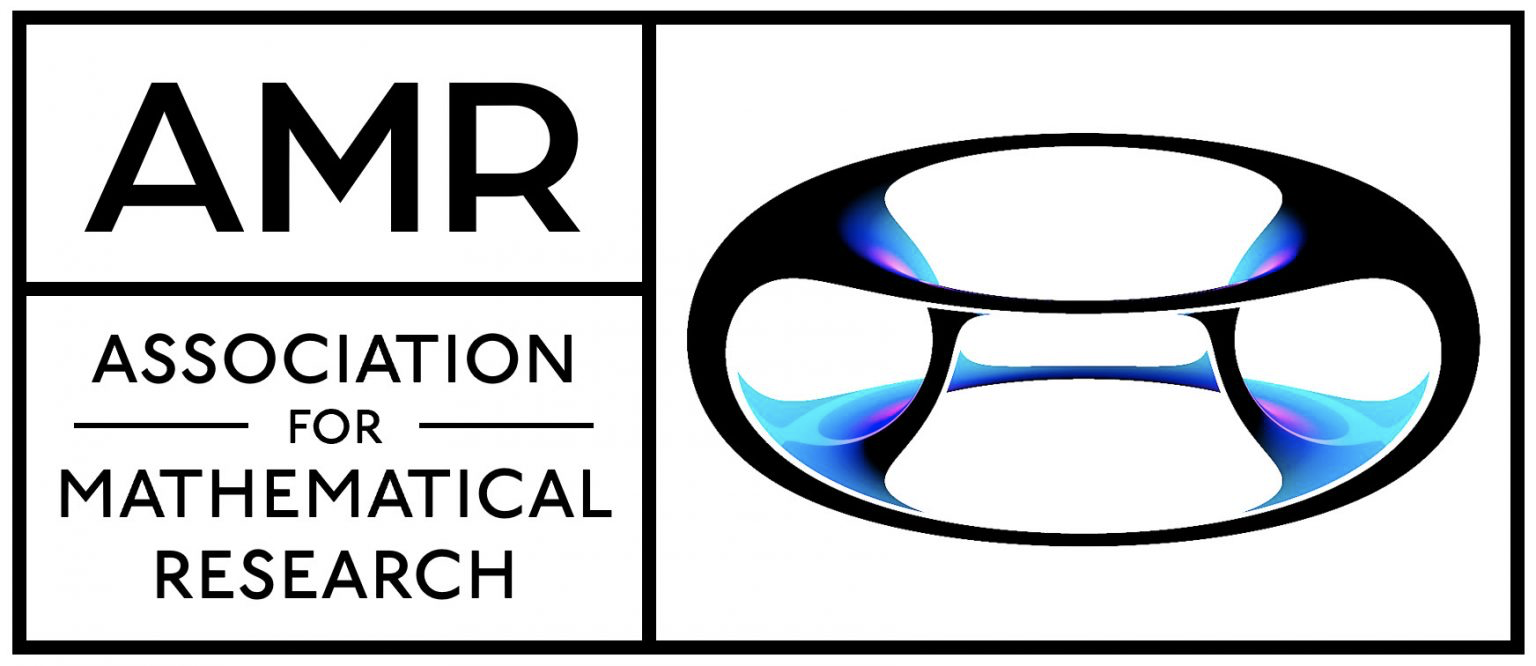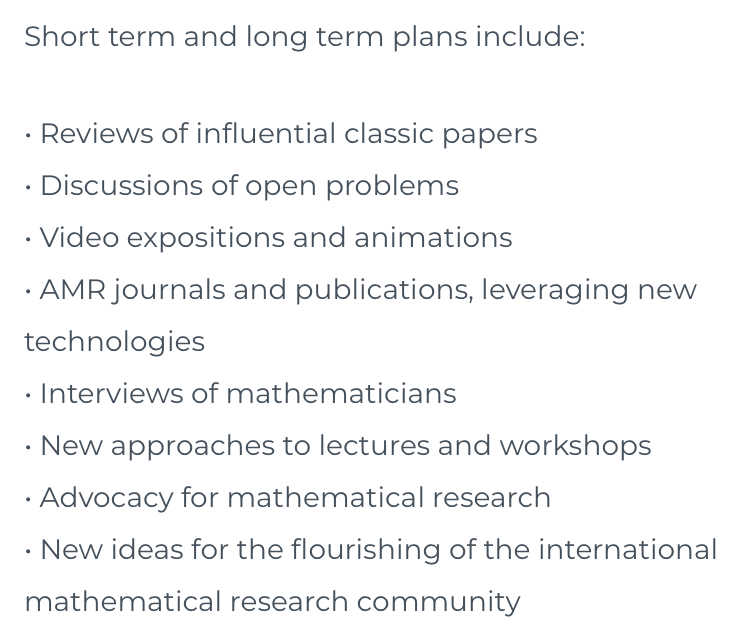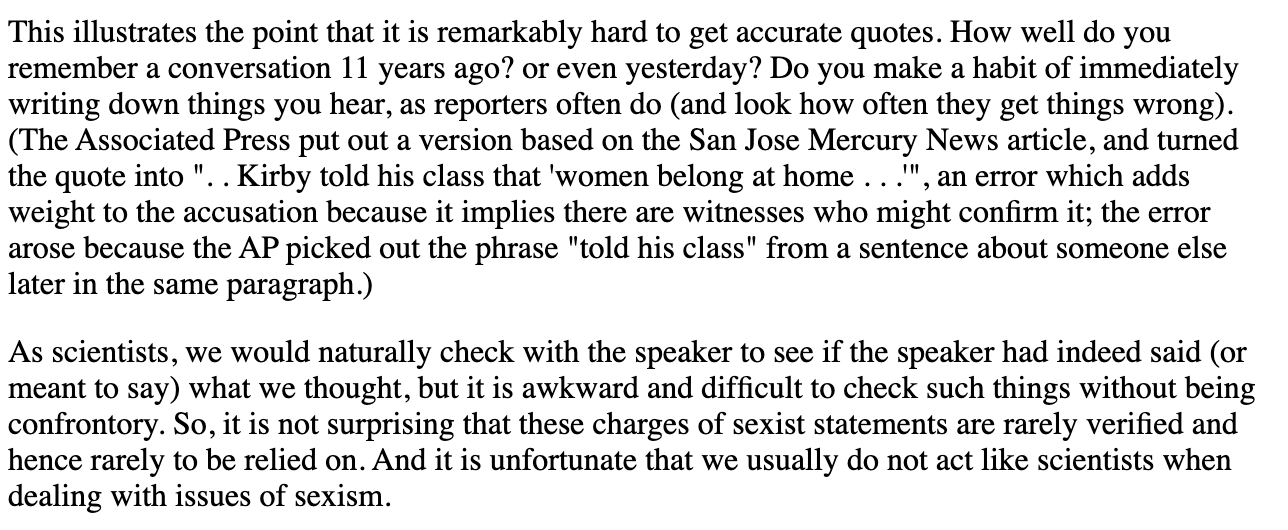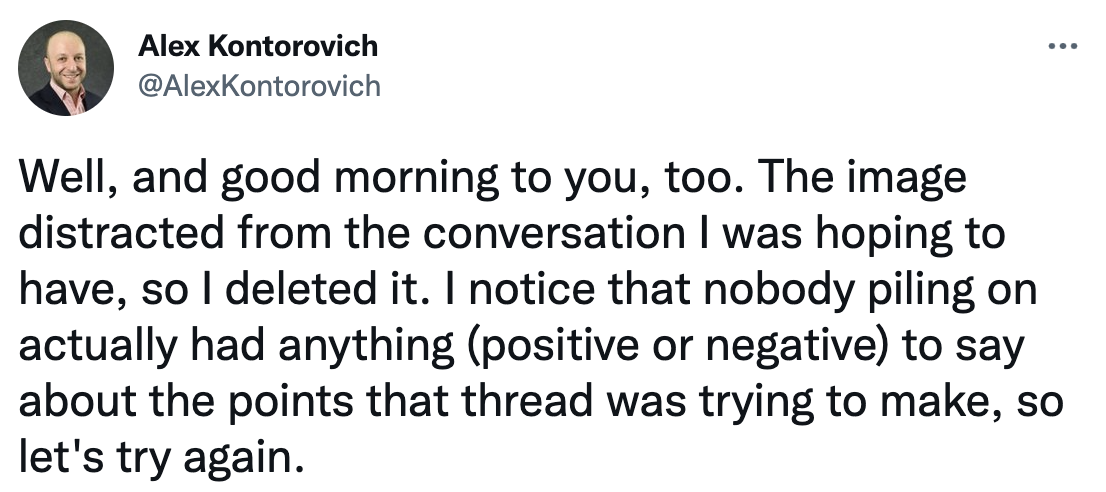|
AMR
In the past few weeks, a new mathematical organization has emerged called the Association for Mathematical Research. Here is the short version: The organization is founded by mathematicians who have opposed DEI efforts in mathematics, who have accused education reformers of politicizing mathematics, and who have been called out for inappropriate, racist, and sexist comments.

The AMR has been called out by numerous amazing people on Twitter and much of this piece summarizes their words and insights. However, because the controversy with the AMR is ongoing and many people have locked or are currently locking their accounts to avoid backlash, I will refrain from mentioning these folks here.
Let’s start with some context. In the world of academic mathematics, there exist different professional societies to support the work of mathematics through publications, meetings and conferences, advocacy, and awareness programs. The American Mathematical Society (AMS) is one of these organizations. In the Fall 2019, the AMS made news because Abigail Thompson, the chair of the math department at the University of California, Davis, wrote a column in an AMS publication against diversity statements for applications to mathematics professor jobs. Different co-signed letters came out in support of Abigail Thompson while others signed a letter opposed to Abigail Thompson’s views. The signatories of the letters in support of Abigail Thompson were largely white, to no one’s surprise.
Fast forward to November 2020, the AMS sponsored the paraDIGMS 2021 Conference on Diversity in Graduate Mathematics Education (link) and continues to do so today. In March 2021, the AMS released a statement from The Task Force on Understanding and Documenting the Historical Role of the AMS in Racial Discrimination (link). The AMS is not a perfect organization and the jury is still out on whether these initiatives rise above the level of performative allyship. Regardless, these examples suggest an increasing awareness of and concern for issues of diversity and anti-racism by some who are associated with one of the most prominent mathematical societies in the U.S.
This brings us to today. The AMR website says that it is “currently in an organizational phase” and does not indicate exactly when it was started. But poof, like magic, here it is: a new mathematical organization. Its stated mission is to “support mathematical research and scholarship” with the following plans:

On the surface, this may seem entirely innocuous. It’s an organization founded to support mathematical research. Nothing seems out of the ordinary, right?

But as several people on Twitter have pointed out, many of the mathematicians who are among the founding members of the AMS are the same individuals who signed the letter in support of Abigail Thompson’s opposition to diversity statements. These individuals include Colin Adams, George E. Andrews, James Arthur, Eric Friedlander, Susan Friedlander, Robert Ghrist, Alex Kontorovich, Sergei Tabachnikov, and Robion Kirby.
The suggestion here is that while the AMR is claiming to be just about “mathematical research”, it is in fact a very political organization committed to ignoring and pushing out issues of accessibility, diversity, inclusion, and other matters that are unavoidable when one does mathematics in the world.
It’s not just a coincidence that the AMR was founded on the heels of a greater push for diversity within the AMS. In this way, the AMR seems more like a separatist organization for those people who are striving for some kind of “purity” within mathematics away from “impure” considerations of race, gender, class, ability, sexual orientation, and socioeconomic status (among others).
This is not to mention the actual things that several of the AMR folks have said. This includes this horrifying piece by Robion Kirby about sexism in mathematics. Snippets:


This also includes the opinion by Alex Kontorovich that equity is synonymous with lowering expectations and standards for all.
Important note: This was the same man who shared a racist meme, deleted it because it “distracted from the conversation”, did not apologize, and tried to reboot the conversation as if no harm was done.

The AMR’s language to “support mathematical research and scholarship”, to engage in “advocacy for mathematical research”, and to generate “new ideas for the flourishing of the international mathematical research community” is essentially a dog whistle*. On the surface, we hear the usual tunes of mathematical research and the development of a research community. However, right below the surface we hear the implicit “only mathematical research” and “the research community” as if mathematical research could be divorced from wider systems of oppression and as if who counts as belonging to the mathematics research community were a settled, unproblematic affair. The dog whistle calls out to that segment of people frustrated by the recent push towards diversity and anti-racism in mathematics and science while providing cover for the dog whistlers under a veneer of neutrality.

But there is hopeful news. By the time this article is released, 16 of the original members of AMR have left. Among them are Danny Krashen, for whom many have commended his decision to listen to members of the mathematical community and avoid harm.
It is here that I would like to shout out the tireless advocacy of those who see the writing on the wall and never stop calling out the AMR for what it is. The AMR is still around, and this is certainly not the first time there has been a “Math Wars” (see this publicly available draft of Alan Schoenfeld’s piece on the Math Wars). There may always be folks (hopefully, a declining number) who insist on “only the mathematics”. But at the same time, there will always be folks (hopefully, a rising number) who see mathematics as a profoundly complex, sometimes beautiful, and always messy human affair.
@melvinmperalta |



